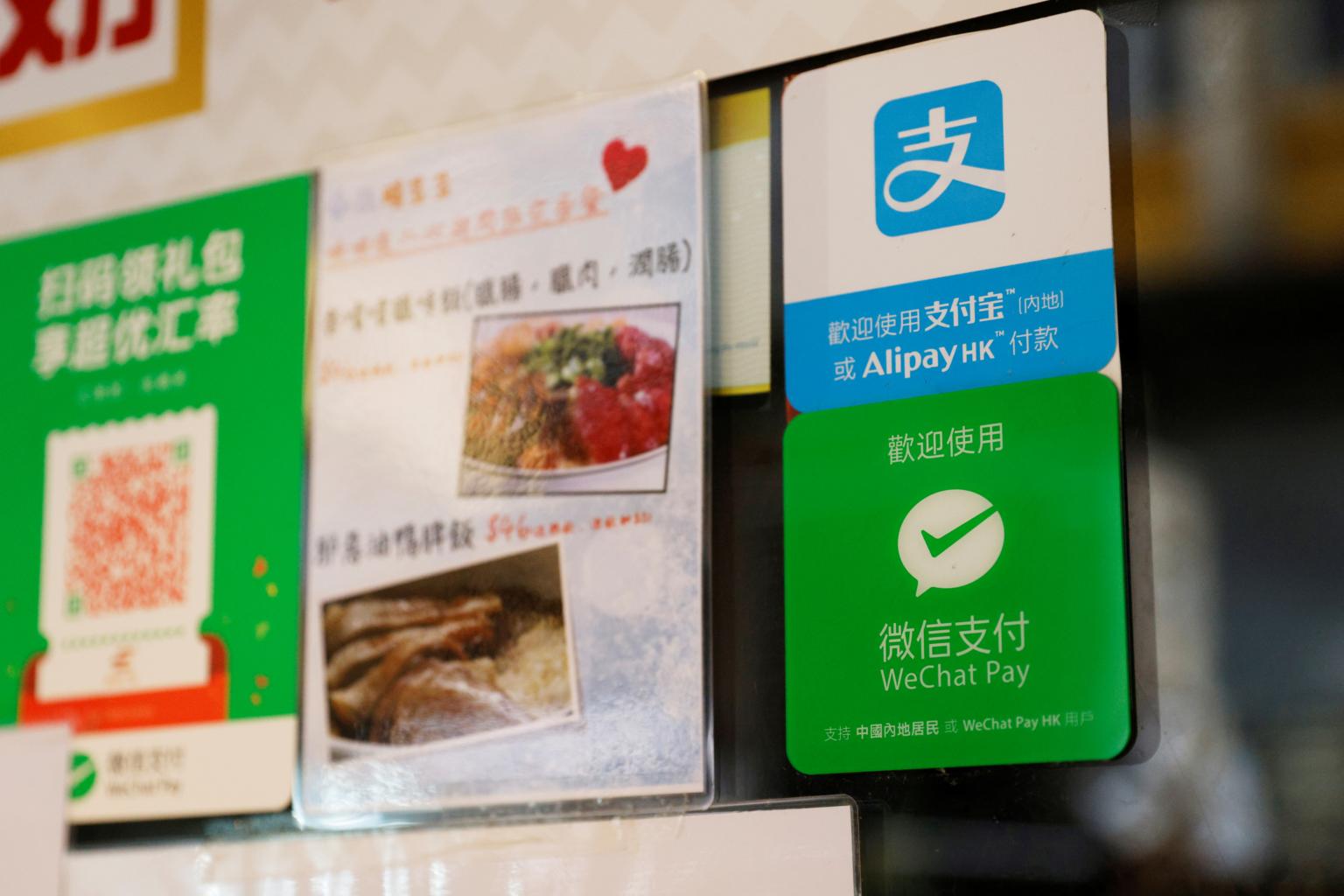Commentary
Why is China regulating Big Tech now?
Sign up now: Get ST's newsletters delivered to your inbox

Alibaba Group Holding and Tencent Holdings, longtime competitors, even asked powerful investment banks to pick sides.
PHOTO: REUTERS
HONG KONG (BLOOMBERG) - Governments around the world put out consultation papers all the time. But only in China can one vaguely worded, 22-page document on antitrust regulations ignite a US$290 billion (S$391 billion) equity selloff. As investors nurse their wounds, they want to know, why is China regulating Big Tech now? And what exactly does Beijing want?
Emerging out of the Covid-19 recession, China got whacked by a K-shaped rebound. The economy is running at two speeds: Large technology companies are thriving, while storefront businesses continue to struggle. A year ago, e-commerce accounted for about 25 per cent of total retail sales; now, it's edging toward 30 per cent. The pandemic has only exacerbated the discrepancy between online and offline. This widening inequality doesn't sit well with Beijing.
To make matters worse, Big Tech has been aggressive and unwilling to share profits with small businesses on their sites. In the antitrust draft, Beijing placed a heavy focus on the so-called "pick one of the two" tactic, the practice of forcing merchants into exclusive arrangements with one platform. Alibaba Group Holding and Tencent Holdings, longtime competitors, even asked powerful investment banks to pick sides. So where do mom-and-pop shops stand?
The tech sector's heavy-handedness caused quite a bit of social uproar earlier this year. In April, when China just came out of the lockdown, Guangdong Restaurant Association published an open letter to Meituan, decrying the food delivery super-app's ability to keep raising commission fees thanks to its 60 per cent to 90 per cent market share in the province. The company has made some concessions since.
But the broader problem hasn't gone away. If sales of offline goods remain shaky, services are still in the doghouse. In September, catering sales continued to contract, down 2.9 per cent from a year earlier. Many jobs are at stake for Beijing. Last year, the hotel and catering industry employed 33 million.
Past consultation papers have also moved markets. Education stocks were all the rage until August 2018, when China decided to amend rules governing the country's lucrative private education sector.
But these papers are, by definition, drafts. Beijing does tweak them. For instance, China is allowing banks to grow online cash-loan businesses, after the final version of commercial-bank guidelines relaxed capital requirements for this type of lending in July. The two previous consultation drafts in November 2018 and April 2019 were stricter, notes CLSA's banking analyst Hans Fan.
So the billion dollar question is the scope and extent of China's latest regulation. Don't get me wrong, Beijing recognizes the economic benefit of natural monopolies. So if Alibaba wants to cross-sell cloud services, go ahead. But officials will balk big time if hard-nosed tech companies exacerbate a K-shaped recovery. All win some, not some win all.
• Shuli Ren is a Bloomberg Opinion columnist covering Asian markets. She previously wrote on markets for Barron's, following a career as an investment banker, and is a CFA charterholder.


